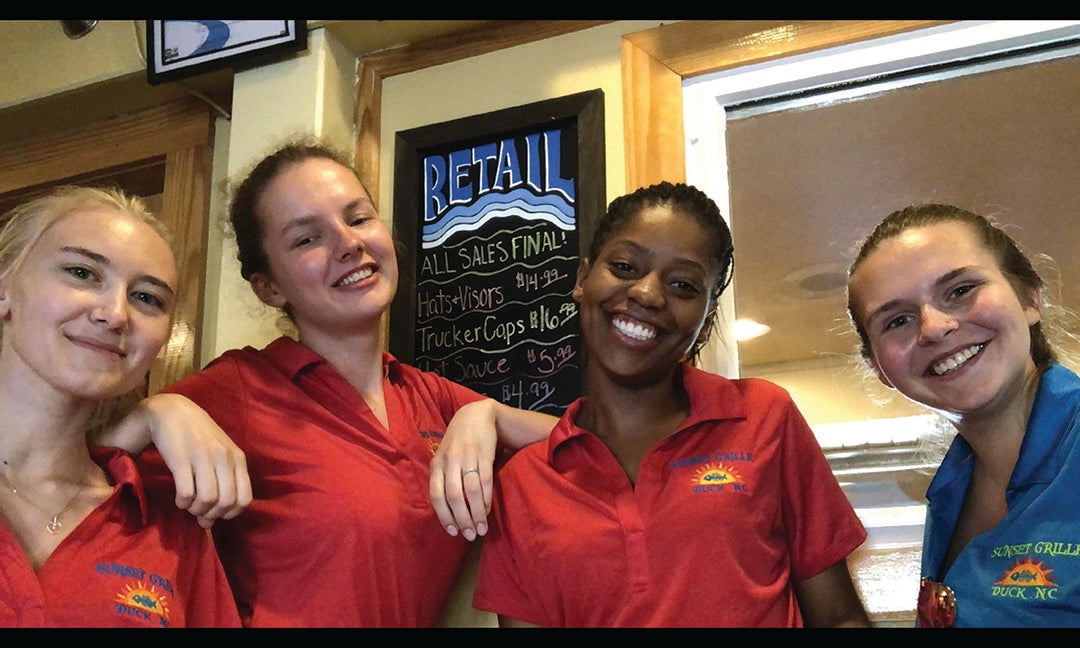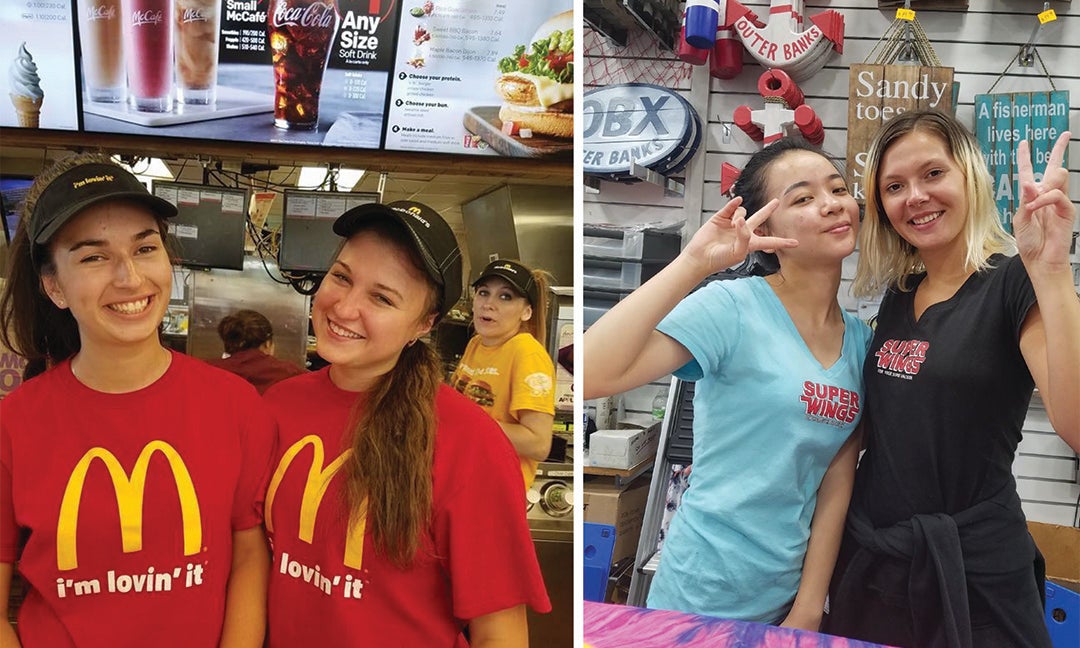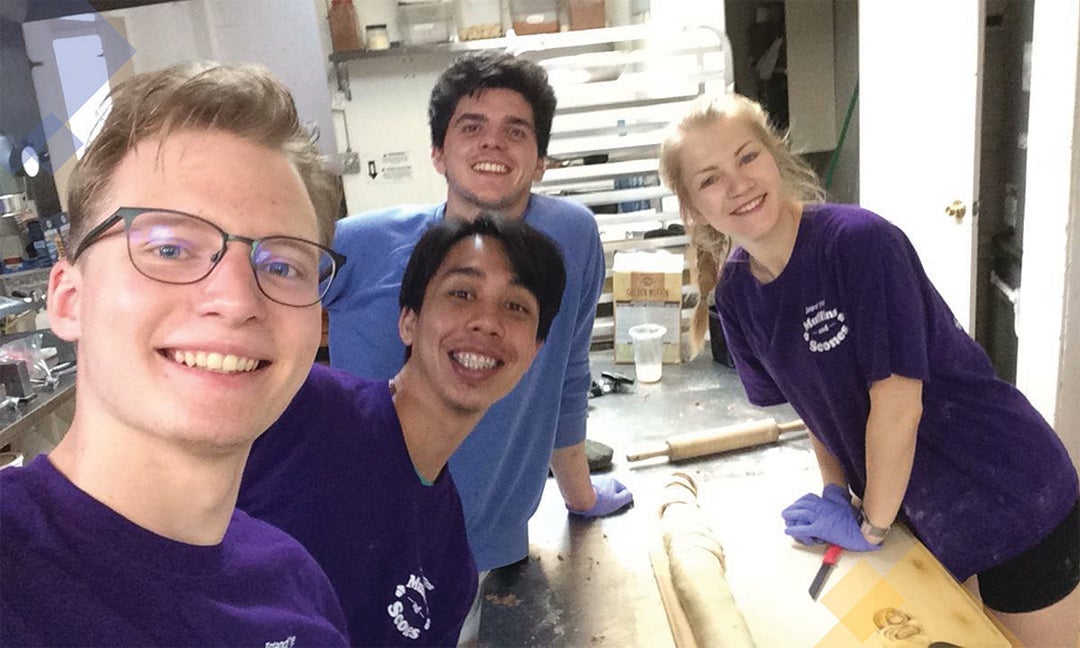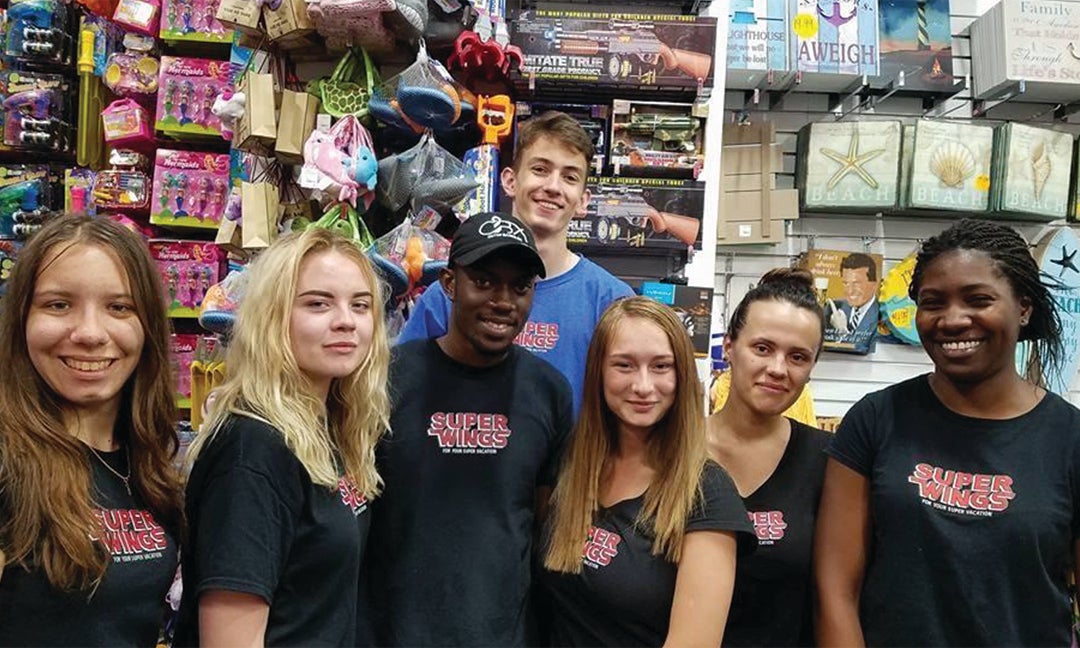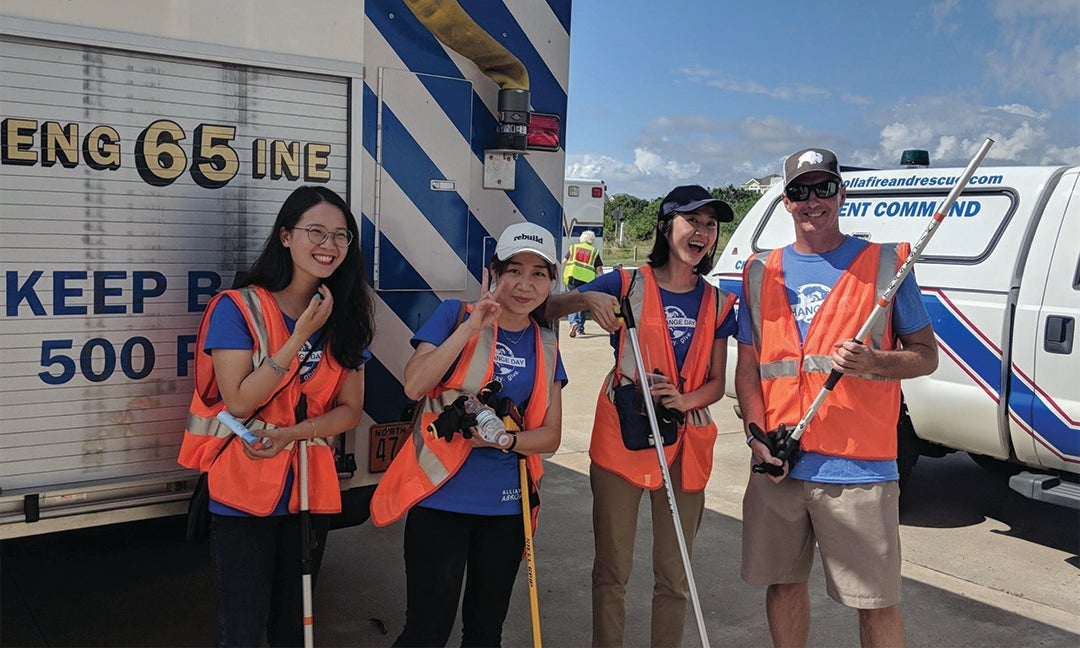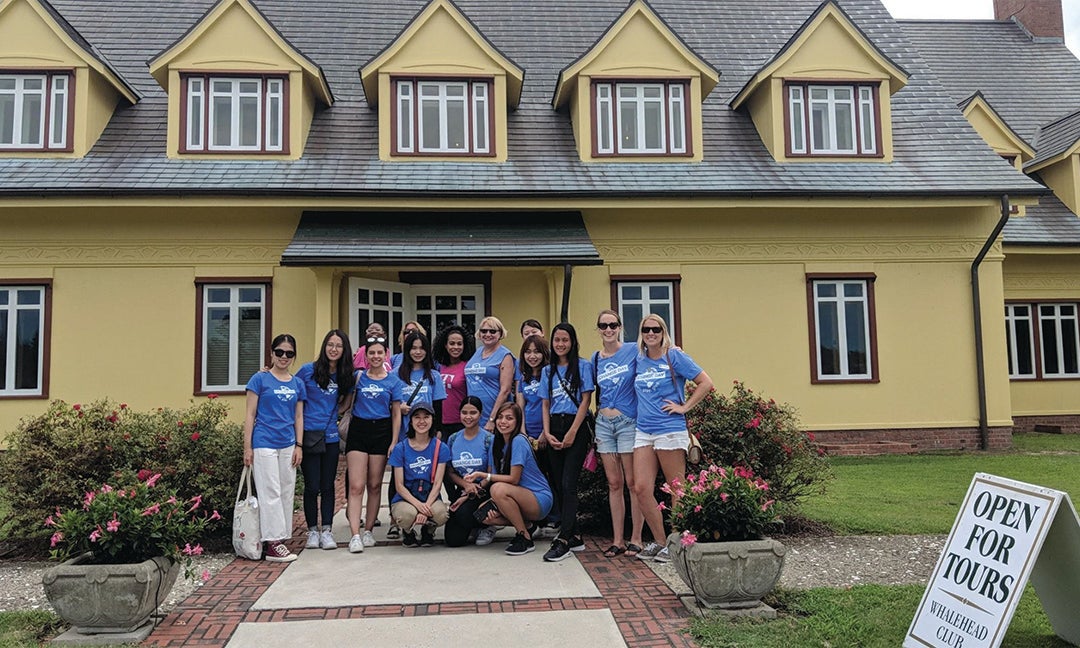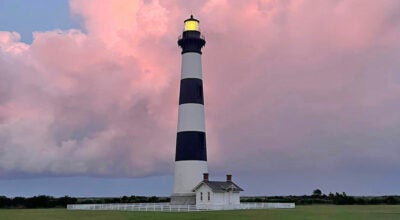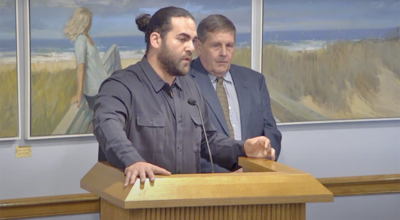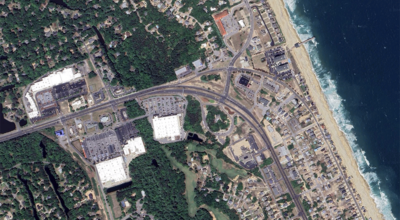J-1 visa workers ‘not going to be a solution for the community this year’
Published 7:06 am Sunday, May 9, 2021
|
Getting your Trinity Audio player ready...
|
You don’t have to travel far around the Outer Banks to see “Help Wanted” signs dotted up and down the highway and the beach road, from Duck to Ocracoke. Dozens of businesses have come to rely on summer work travel participants to staff the busy season.
In 1961, U.S. Senator J. William Fulbright introduced the Exchange Visitor Program, also called the J-1 visa, as a mutually beneficial short-term work experience for foreign students, teachers and other professionals. Under the J-1 umbrella is the Summer Work Travel program, which allows college students from around the world to secure a work visa for a limited number of days, followed by a time to travel and explore the country.
Businesses in tourism-related areas like the Outer Banks have utilized the Summer Work Travel program to staff positions in restaurants, hotels and retail stores.
“These students provide a valuable service to everyone,” said Renee Cahoon, a Nags Head commissioner who also owns and runs Cahoon’s Market & Cottages, a tradition in the Outer Banks since 1962. Her business personally suffered from the reduced workforce in 2020, closing early each day. “Everyone here on the Outer Banks was overworked. The whole area suffered from the lack of labor. These kids are important – everyone who works in the Outer Banks is important,” she said.
According to Cahoon, international students are not always treated like they’re important. “Our attitude should be, ‘Thank you for coming here to work,’” she said. “I’ve seen them be abused terribly… people saying, ‘Why the hell are you here if you can’t speak English?’”
All students undergo an extensive hiring process which includes English proficiency assessment and customer service skills, as well as pay thousands of dollars to participate in the program. “Many of the students work two jobs to make up for what they’ve spent to get here,” said Jamie Banjak, the chair of the Outer Banks International Student Outreach Program (OBX ISOP), a volunteer organization with a mission to “provide a safe and successful experience for the exchange visitors who temporary live and work in the Outer Banks every summer.”
But, according to Banjak, the infrastructure to provide for an enjoyable, safe experience for J-1 participants is lacking. The Outer Banks does not have public transportation, well-lit bike paths or sufficient affordable housing options. “It’s a case of somebody, anybody, nobody. There’s not a regional solution,” she said. “We’re better than this. We should show better than this. We haven’t done a lot to court our workforce,” Banjak said. “They are such a vital part of our workforce. We are getting super smart, extremely motivated students,” she said.
“Our J-1 students work very hard,” said Destiney Allen, human resources admin and recruiter with Kitty Hawk Kites. In a typical (pre-COVID) year, Kitty Hawk Kites employs 50 to 60 J-1 students through the visa sponsor Intrax. “Our American workers also enjoy working with J-1s and learning their cultures. Our American interns also see it as another opportunity to grow their leadership and communication skills,” Allen said.
Food Lion also relies on J-1 visa participants for the summer season. “Food Lion has had a very positive experience hiring J-1 visa participants at our Outer Banks stores,” said Ben Gould, director of operations for Food Lion. “Every day, Food Lion seeks exceptional talent, and we always hire additional associates during the peak summer season as it takes a significant addition to our workforce to best serve our customers during this time. To help meet that increased need, we are always excited to hire international students as it helps us share and expand cultural experiences across our workforce while ensuring our neighbors can enjoy all the products and services at the everyday low prices they expect from Food Lion. We look forward to again welcoming associates that will join our team through the J-1 visa.”
Across the nation, pre-COVID, there were over 100,000 J-1 participants from Alaska to Florida and 1,793 in the Outer Banks in 2019. That number had been rising steadily each year. In 2020, due to the pandemic and the White House’s ban on J-1 visas, that number in the Outer Banks dwindled to less than 200. And many of those were students from Ecuador who arrived in early spring and were stranded here during the lockdown phase.
Though the ban on J-1 exchange expired on March 31, 76% of consulates are still fully or partly closed, according to an April 9 article from the CATO Institute, and those that are open are not prioritizing exchange work travel visas. Only 57 out of 237 visa processing sites around the world were fully operational as of April 8 for nonimmigrant visa applicants, and only 41% of those allowed anything beyond emergency applications. Even if a student is fortunate enough to have an open consulate willing to process work travel visas, the wait time is three months for a visitor or business traveler visa; a third of sites had a wait time of four months; and about a fifth had wait processing times longer than six months.
What does this mean for the Outer Banks?
“They’re not coming,” said Banjak. Though some visas may be processed, according to Banjak, “it’s not going to be a solution for the community this year.”
Students who are able to secure a visa still have battles to face. Mainly, finding housing.
The affordable housing crisis has only gotten worse, with many rental homes being sold this year due to high real estate prices, and others being rented to tourists through sites like Airbnb or VRBO. While some employers such as Kitty Hawk Kites do offer housing, many international students are tasked with finding housing on their own.
Clay Lewis, employer and community engagement manager at InterExchange, one of the visa sponsors who brings J-1 students to the United States said, “Housing is critical to the success of the Summer Work Travel program in the Outer Banks. Visa sponsors, like InterExchange, need to ensure that program participants will have suitable, safe, affordable housing and reliable and affordable transportation.”
The Town of Nags Head Board of Commissioners passed a resolution requesting housing from private entities for the ocean rescue lifeguards that they bring in. According to the resolution, about a third of the lifeguards the town recruits are participants in the Summer Work Travel program. A portion of the resolution states: “The Town’s standing as a family-focused destination relies upon the safety of its beaches. Seasonally, this is the primary responsibility of the Town’s Ocean Rescue Division lifeguards.”
Transportation is another serious issue. Some Outer Banks towns have poorly lit bike paths or no path at all. Some crosswalks are spaced miles apart. Over the years, there have been international students who have been injured or even died because of bicycle injuries. “Have you ever walked around Kitty Hawk at night? It’s really dark,” Banjak said. But, according to Banjak, improvements have been made in some areas including sidewalks in Nags Head and Duck, as well as motion activated crosswalks in Southern Shores.
OBX ISOP helps students obtain a bicycle, gives away reflective lights and teaches the general rules of the road and bike safety. They with local community organizations, businesses, employers, churches and some town governments to help students acclimate and have a positive summer work experience.
“Who’s taking you to Walmart to buy toothpaste?” Banjak asks. Even simple issues like these can feel monumental to international students with no prior knowledge of the area and little connections. Churches like Corolla Chapel have invested heavily in students, helping secure transportation from Norfolk airport upon arrival and assisting students with errands or other needs.
Many of the needs are relational. Students arrive not just to make money but to experience the United States and form relationships. “There are people here who hosted students years ago and have Bulgarian ‘grandkids’ they still keep in touch with,” Banjak said.
“There are so many great things about this program,” Banjak said. “I hope these towns see how to work together, to impact quality of life, not just for J-1, but the long-term workforce as well.”
For information on volunteering through OBX ISOP, visit them online at www.obxisop.com. Or, to find out how you can be a host family through InterExchange, contact Clay Walker at clewis@interexchange.org.
READ ABOUT MORE NEWS AND EVENTS HERE.
RECENT HEADLINES:
Cape Hatteras National Seashore night driving rules in place


